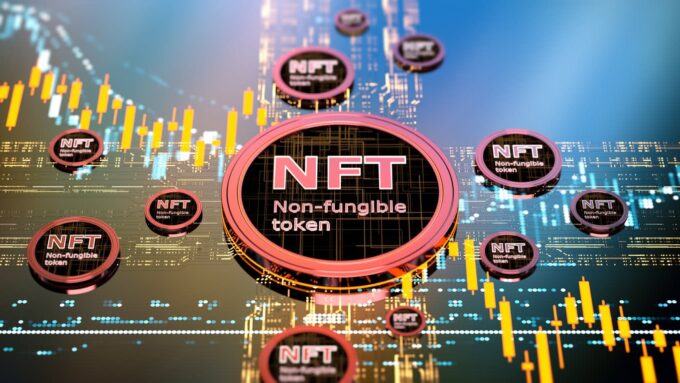You’ve probably heard of Bitcoin: the infamous cryptocurrency sensation that swept the tech world by storm. Its value proposition of a completely decentralised peer-to-peer exchange platform was the first of its kind to reach the mainstream market, and while it has ways to go before mass adoption, it’s getting there.
In fact, according to thetopcoins.com, the Bitcoin evolution hasn’t been able to achieve its goal of decentralisation despite being around for over a decade. You’ve likely also heard of Ethereum. It’s the first smart contract-based network that allows anyone to build decentralised applications and even mint tokens on its platform.
These use cases aren’t derived from cryptocurrency. Instead, they come from blockchain technology, which has massive potential to change the world. Ethereum is the blockchain that houses the famous altcoin Ether (ETH). What’s traded in exchanges is ETH, but it’s Ethereum that empowers developers with its robust network.
Likewise, there are thousands of other use cases that blockchain offers. Its enhanced security, transparency, and useability make it an ideal add-on to any business model. Here’s how you can take advantage of this groundbreaking innovation.
Supply Chain Management

Supply chains are some of the most complicated facets in a company’s logistics efforts, often spanning across multiple continents on a limited timeline. Naturally, there’s a high chance of errors across the entire workflow, whether through mismanagement, miscommunication, or simply delays due to time zone differences.
Reports found that supply chain errors cause 40% of North America’s food waste, with 17% occurring in production. Other areas of the globe aren’t doing too great, either. In South and Southeast Asia and Sub-Saharan Africa, 37% of food waste is caused by mistakes in handling and storage. All of these can be mitigated by a more intuitive supply chain network that accounts for every step of the process.
Out of all blockchains on the market, VeChain stands out for being dedicated to automating the world’s supply chain. It’s partnered up with big brands, from PwC to Deloitte, BMW, and Amazon Web Services and offers a platform that allows you to customise automated actions for all the pain points in the supply chain.
For instance, food handling is an issue because ingredients need to be stored in specific temperatures to remain fresh. Suppose a tomato needs to be at 60 degrees Fahrenheit for optimum freshness, but a shipping container drops to 45 degrees. In that case, the network can be programmed to automatically alert the persons in charge to mitigate the issue before spoilage occurs.
As blockchain records all transactions, all areas of the supply chain can be traced down to inception. Some brands include a QR code on each product, directing consumers to a platform that shows them the product’s entire journey, from ingredient sourcing to production and final delivery. The same concept can be applied to other industries and businesses of all sizes.
Smart Contract Technology

It’s hard to dismiss how crucial smart contracts are in building a decentralised internet. These are essentially digital contracts that underwrite responses to specific actions. For instance, in ecommerce, logistics mistakes can result in the consumer not receiving their order. But if they have already paid for the package, they’ll be in a pickle: they need to deal with customer service, who then needs to go through all the transaction records to verify the claim and coordinate with logistics to figure out what went wrong.
This conflict response process—a necessity in any retail arrangement—is time-consuming, resource-intensive, and isn’t a pro-consumer move, as the buyer would have to put in more work to resolve a fault that is likely not theirs.
Smart contracts can simplify the purchase workflow by holding the payment until the consumer has successfully received the order. By clicking “order received,” the consumer initiates a trigger for the smart contract to release the payment to the seller, removing the difficult communication process in between.
Smart contracts can be integrated into decentralised applications built on blockchains that support them, such as Ethereum and Cardano. An example would be the Origin Protocol—a decentralised version of the well-used Shopify.
Non-fungible Tokens

Non-fungible tokens (NFTs) are minted on blockchains like Ethereum and Cardano, though the former is the more popular of the two. They’re unique and non-replaceable assets, essentially turning them into one-of-a-kind collectibles akin to luxury goods or fine artwork. NFTs allow anyone to claim ownership of any digital file, including pngs, memes, music, and even video clips, revolutionising digital asset ownership.
There has been a mania over NFTs in recent months, especially after a digital artist named Beeple closed a $69 million sale for a png. Yes, you heard it right. $69 million for a png. While most NFTs don’t fetch that much, a lot has sold for a pretty penny. The bottom line is that there’s real interest in virtual goods and services, prompting brands to start looking into how they can take advantage of this trend from a retail perspective.
Decentraland is a blockchain-based game that’s already made millions selling virtual land. Luxury fashion houses like Gucci and Louis Vuitton are looking into creating NFTs, already having dipped into the digital sphere through prior virtual drops. Dressx sells digital fashion—completely intangible and with a potential for NFT adoption.
This blockchain-based innovation is new and fresh, offering businesses an opportunity to take advantage of the technology by picking it up before larger competitors overtake the market. If your line of work involves software development, gaming, fashion, design, or other aspects of retail that can be transposed into the metaverse, then NFTs are a great way to bring innovation and interest to your brand.
Borderless Transactions

One of the biggest struggles that businesses face worldwide is the inability to cater to consumers in difficult-to-reach countries. For instance, an average, small-scale online store from the US might be able to ship to the far corners of Nigeria—but what about the payment method?
If internationally-supported financial products (such as credit cards) aren’t widely used among a consumer group, then there’s no way they can make payments to connect with global sellers. For instance, cash cards or debit cards are often more popular as they’re easier to obtain access to.
These cash cards might work with local payment platforms but might not be able to cross borders for larger international payments. Third-party providers might be an option, but large fees are not favourable considering the already-stressful shipping costs.
Cryptocurrency’s primary value proposition is to allow for borderless peer-to-peer payments, regardless of where you live and how much you transact. From classics to new altcoins, this defining factor represents a common goal for all coins.
However, due to the market’s volatility, aligning the fiat-equivalent value of coins against the cost of the goods and service is a constant challenge. It doesn’t make sense for 0.00040 BTC to be able to buy four coffees one day and only one the next. The inconsistent value is detrimental for both consumers and businesses, hence why it isn’t an already widely-used payment option.
However, other blockchain-based cryptocurrencies offer the same peer-to-peer, borderless transactions without large fees and volatile spikes and dips in value. These are often dubbed as stablecoins, with the most popular being Tether (USDT), or anchored coins, such as The People Reserve (TPR). They’re pegged to an external reserve of funds, so every token has a USD equivalent to account for it. As a result, its value isn’t speculative and remains stable throughout its lifetime.
Blockchain technology has been revolutionary in reshaping the traditional business model, addressing the inefficiencies throughout the supply chain while elevating the consumer experience. Blockchain-as-a-service (BaaS) is expected to grow in the near future, along with even more smart contract-based integrations to help your business flourish within the digitally-forward economy.








